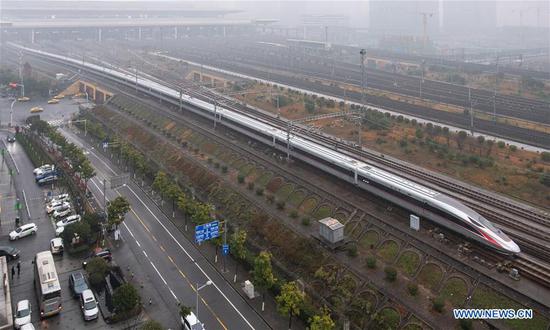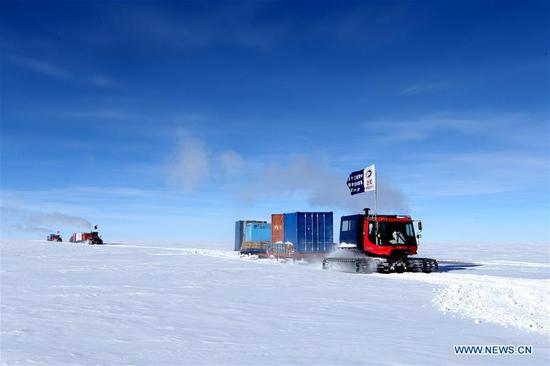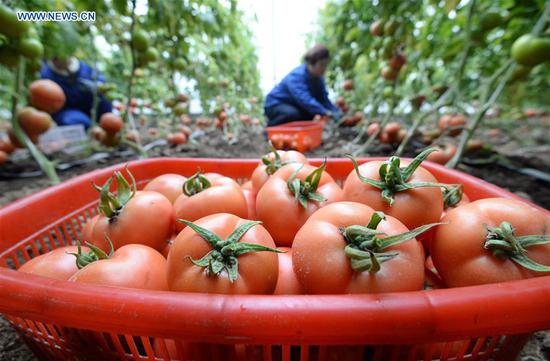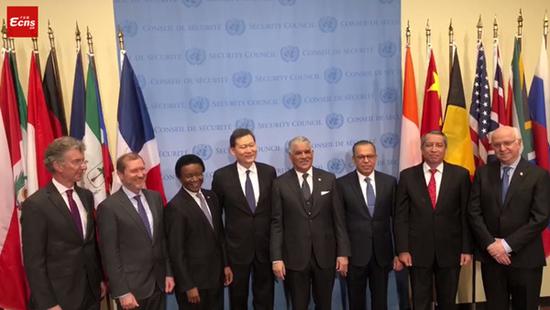Even as the global economy is growing, the basic needs of developing countries are rising as many grapple with population growth, conflict and environmental degradation.
Despite the international community's pledges in 2015 to increase financing for development and support poor countries through the United Nations' Sustainable Development Goals, analysis by the Organization for Economic Cooperation and Development shows that available financing to developing countries is actually decreasing.
Overall external finance to developing countries dropped 12 percent between 2013 and 2016. Private investment in particular has shown a sharp decrease, with foreign direct investment dropping by 30 percent over 2016-17 to $750 billion. Official Development Assistance, the term used by the OECD's Development Assistance Committee for aid in support of developing countries, remains steady but below target, at $146.6 billion in 2017. Other financial flows, such as philanthropy, remain relatively small, albeit critical for some sectors like health.
The revenues collected by the governments of developing countries-the main pillar of financing for development at $4.3 trillion-remain on average below the 15 percent of GDP threshold considered necessary for effective state functioning.
Remittances reached a record high of $466 billion in 2017. However, these carry transaction costs. According to the OECD, reducing transfer costs by just 1 percent would increase the value of total remittances by $30 billion-equivalent to nearly a quarter of total Official Development Assistance flows.
There is an urgent need to use all these resource flows more strategically to ensure that development financing is fit for a future of inclusive and sustainable development.
To do this, we must change our way of thinking and start seeing development finance as an investment, rather than as a cost. A useful way of analyzing the broadening landscape of actors is to consider it as a marketplace, where providers compete and respond to the global demand for sustainable development financing. This competition can help to drive innovation, tailor financing to the needs of beneficiary countries and promote higher social and economic returns.
In such a marketplace, public providers have both a mandate and a moral imperative to support development in countries most in need, and to promote sustainable growth, long-term resilience and stability. A recent OECD report, Global Outlook on Financing for Sustainable Development, shows that our goal must go beyond "turning billions into trillions". The larger objective is to turn all existing finance into more impactful investments for the billions of people who live in extreme poverty and vulnerable conditions, including those forced to flee their homes to seek refuge from conflict or climate-related crises.
In response, we need an overhaul of the development finance system to improve transparency, set clear international standards and empower recipient countries to make optimal choices. We also need to do more to measure the impact, rather than just the volume, of development finance, and for a more strategic interplay of suppliers, intermediaries and beneficiaries to ensure the maximum impact of each dollar spent.
Specifically, we call for bold action on three fronts:
First, on measurement: We need better indicators and tools to assess the volume of financial flows, but also their alignment with the development goals. A new transparency initiative is needed. Measurement must expand beyond aid to all flows from all actors, and to tracking flows toward specific goals and development objectives.
Second, policy reforms are needed to "shift the trillions", creating new incentives for all resources available in the global economy to be invested in compatible ways. This includes policies to guide OECD countries, partner countries and intermediary financing actors; preventing harmful practices such as tax avoidance; encouraging best practices on financial markets and making policies fit with development goals, for example through tax regimens and investment frameworks, and efforts to reduce the cost of remittance transfers.
Finally, we must better match the supply of development financing to demand. This means better coordination of donors and other actors in developing countries, making the most of cities, regions, global platforms and contributions from companies and individuals. This includes better linking financing to each country's development strategy, supporting developing countries' ability to make the most of financing options through integrated national financing frameworks. And it means better tailoring our approaches and partnerships to the needs and opportunities of specific countries, sectors and policy goals.
The author, Jorge Moreira da Silva, is director of the Development Cooperation Directorate at the OECD.


















































